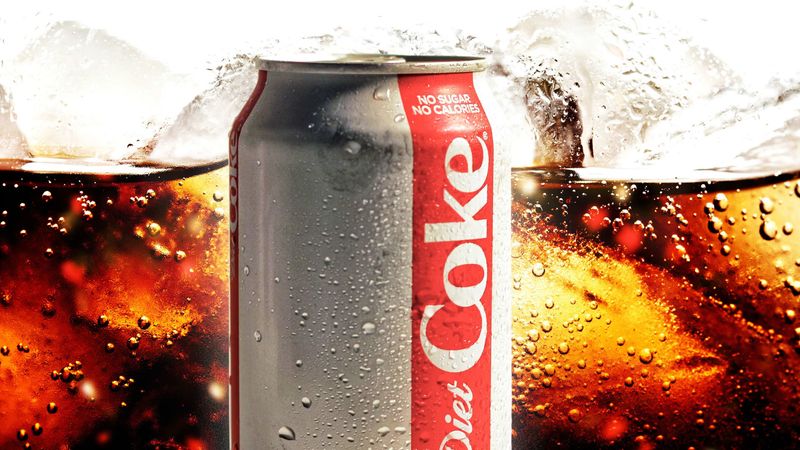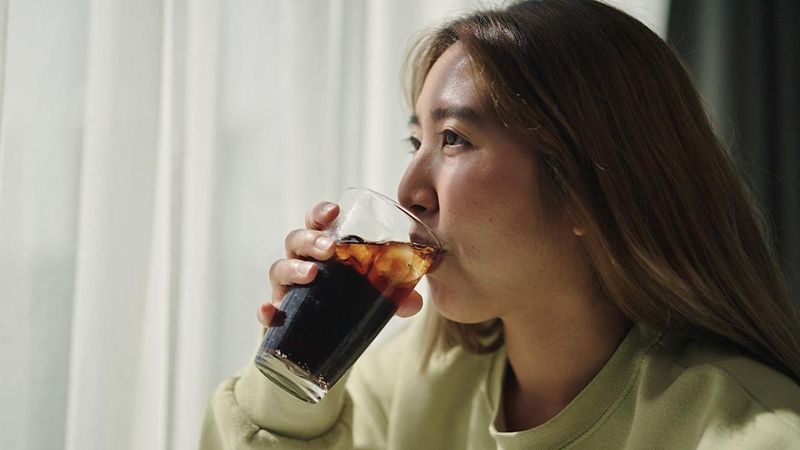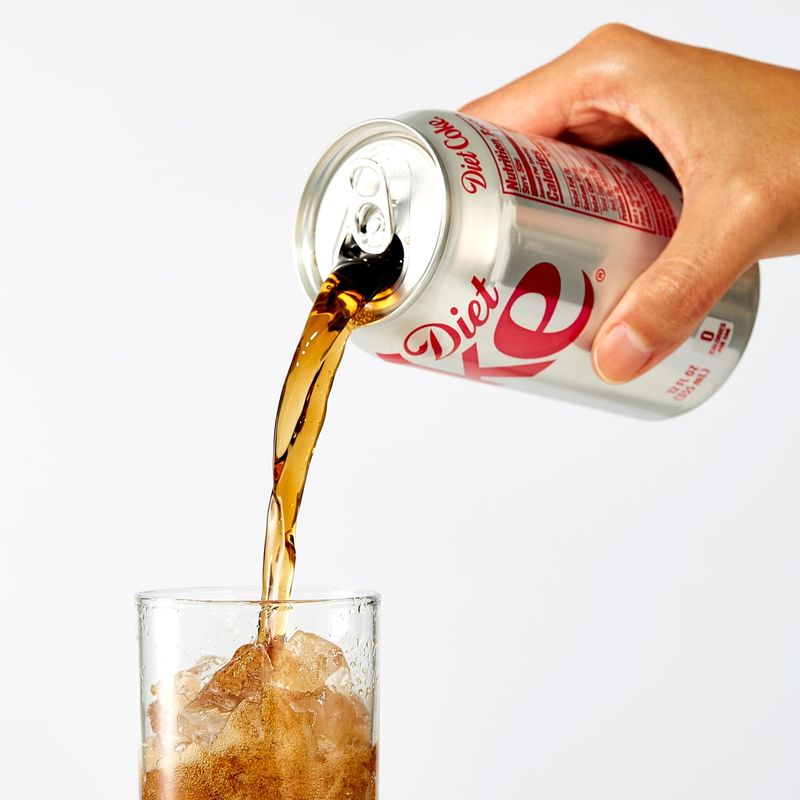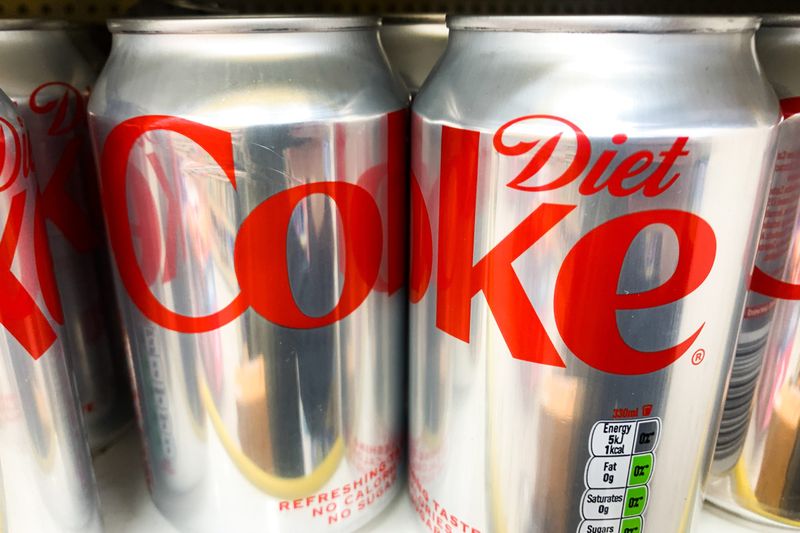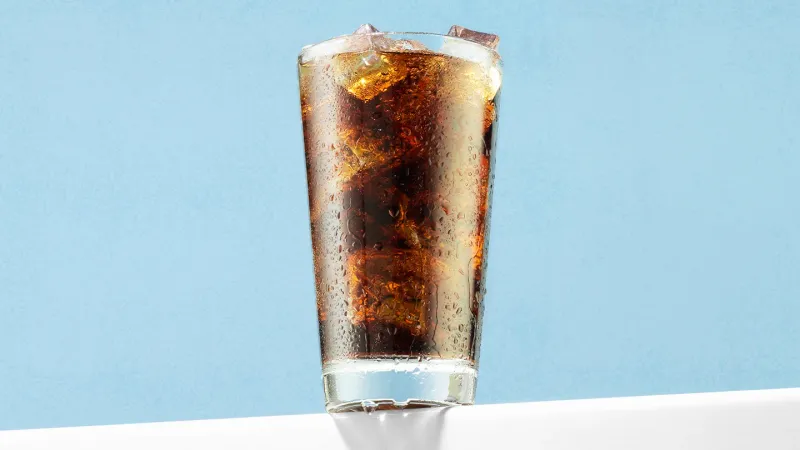Something curious is happening in break rooms and dorm kitchens across the country – Gen Z is reaching for icy cans of Diet Coke instead of cigarettes when they need a break.
This new ritual, dubbed “fridge cigarettes,” mimics the smoke break of previous generations but swaps tobacco for caffeine and carbonation.
The trend went viral thanks to TikTok creator @reallyrachelreno, whose video comparing the hiss of a soda can to a lighter struck a chord with millions. With over 3.8 million views, the “fridge cigarette” has become Gen Z’s quirky new coping mechanism.
1. What Exactly Is a “Fridge Cigarette”?
Picture this: instead of stepping outside for a smoke, someone opens the fridge and grabs a cold Diet Coke. The term came from TikToker @reallyrachelreno, whose viral video compared the satisfying “crack and fizz” of opening a Diet Coke to lighting up a cigarette.
This isn’t actually about tobacco at all. Young people use this cold beverage as their go-to stress reliever during tough moments at work or school.
The ritual involves the same mindful pause that smoking once provided, but with aluminum cans instead of cigarette packs.
2. The Ritual Matters More Than the Drink
Forget caffeine or carbonation – this trend centers entirely around ceremony and routine. The satisfying pop of the tab, cold aluminum against your palm, that first sharp sip – every step creates a sensory experience that demands your full attention.
Psychologists recognize this behavior as mimicking the “mental pause” that cigarettes traditionally offered stressed individuals. The physical actions force your brain to slow down and focus on something other than whatever was causing anxiety.
Each deliberate movement becomes a mini-meditation session disguised as a beverage break.
3. Health Experts Question Diet Coke’s Safety
While Diet Coke seems harmless compared to cigarettes, medical professionals raise serious concerns about regular consumption. Artificial sweeteners like aspartame may disrupt gut health and interfere with normal brain chemistry over time.
The drink’s high acidity levels can gradually erode tooth enamel, leading to dental problems. Long-term studies suggest potential links to metabolic issues, weight gain, cardiovascular problems, and even stroke risk.
The World Health Organization specifically states that artificial sweeteners shouldn’t be used for weight control or disease prevention purposes.
4. Experts Warn About Unhealthy Coping Patterns
Mental health professionals worry that relying on Diet Coke for stress relief could create dependency loops similar to smoking addiction. While less physically dangerous, this habit still masks underlying issues like stress, fatigue, or emotional burnout without addressing root causes.
The pattern becomes problematic when people automatically reach for a can whenever life gets challenging. This prevents them from developing healthier coping strategies or solving the problems creating their stress.
True healing requires facing difficulties head-on rather than temporarily numbing them with ritualistic beverage consumption.
5. Why This Trend Appeals to Young People
Several psychological factors make “fridge cigarettes” irresistible to Gen Z. First, the ritual provides a sense of control – you consciously choose to take a break on your own terms rather than being forced into stressful situations.
The trend also offers identity and community appeal through social media validation. Many young people grew up watching older relatives religiously sip Diet Coke, creating nostalgic connections to family memories.
This combination of personal agency, social belonging, and familiar comfort makes the habit feel both trendy and emotionally satisfying.
6. Healthier Alternatives to Consider Instead
If you’re using Diet Coke as your primary pick-me-up, several healthier options can provide similar ritual satisfaction. Sparkling water with fresh lemon or mint offers the same fizzy sensation without artificial ingredients.
Herbal iced teas like chamomile, rooibos, or peppermint provide flavorful alternatives that actually promote relaxation. Cold-brew green tea delivers gentle energy without the chemical concerns of artificial sweeteners.
Non-beverage options like short walks or quick breathing exercises can create the same mental pause while actively improving your physical and emotional wellbeing.
7. Better Than Smoking, But Not Risk-Free
The “fridge cigarette” phenomenon represents a fascinating cultural shift toward less harmful stress management compared to traditional smoking. Nobody’s developing lung cancer from Diet Coke consumption, which makes this trend objectively safer than tobacco use.
However, calling this habit completely harmless would be misleading and potentially dangerous. Regular consumption still carries health risks that shouldn’t be ignored or dismissed as trivial concerns.
If you find yourself reaching for Diet Coke every time life gets difficult, consider what you’re really craving: genuine calm and peace, not just temporary fizzy distraction.

